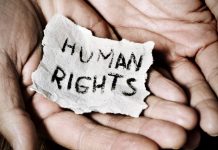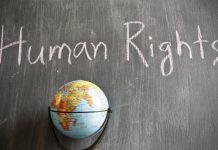The article is written by Daksha Khanna from Symbiosis Law School, NOIDA. The article aims to inform the readers about the national courts for human rights, functions, powers, and challenges.
Table of Contents
Introduction
Human rights in India are guaranteed and protected mainly by the Constitution of India. These rights form the organic laws of the country. It acts as a basis for the other rights to develop. A constitutional amendment cannot alter the rights except through constitutional amendments. The process of modification is cumbersome and requires several debates, discussions, and deliberations. The Universal Declaration of Human Rights becomes a reference for framing the provisions in India. Human rights had another objective of establishing a stable government.
Human rights are defined as “the rights related to life, liberty, equality, and dignity of the individual, which is guaranteed by the Constitution or embodied in the International Covenants and enforceable by the Indian Courts. “
It is necessary to maintain a good relationship between the government and human rights. The enactment of the Protection of Human Rights Act (PHRA) 1993 led to the establishment of:
- National Human Rights Commission;
- State Human Rights Commissions; and
- Human Rights Courts.
National Human Rights Commission
The National Human Rights Commission (NHRC), established on October 12 in 1993, has been established under the Protection of Human Rights Act (PHRA), 1993. The act has been amended, and the new show is called the Protection of Human Rights (Amendment) Act, 2019. The NHRC was established for promoting and protecting Human Rights. NHRC is based on the Paris Principles, which were adopted at the first international workshop on protecting human rights. The United Nations General Assembly also endorses it.
Composition
- Chairman – Retired Chief Justice of India
- Members – 1 Supreme Court Judge + 1 Chief Justice of High Court + 2 members having knowledge or experience in Human Rights.
- Ex- officio Members-
- Chairman of National Commission for Minorities.
- Chairman of National Commission for Scheduled Castes.
- Chairman of the National Commission for Scheduled Tribes.
- Chairman of National Commission for Women.
The mission of the National Human Rights Commission
The NHRC is responsible for spreading human rights awareness amongst the masses and encouraging the efforts of all stakeholders in the field of human rights literacy not only at the national level but at the international level. NHRC is a unique institution as it is one of the few National Human Rights Institutes (NHRIs) in the world whose chairperson is the former Chief Justice of the country. The NHRC plays an active role in promoting human rights by coordinating with other NHRIs to enhance awareness of human rights. It has been a host to several delegations from UN Bodies and other National Human Rights Commissions and members of the civil society, lawyers, and political and social activists from many countries.
The strategic plan for NHRC involves an extensive program that requires participation and engagement amongst all the stakeholders. NHRC focuses on the protection of human dignity for all, protecting the rights of the people with a greater focus on people marginalized sections of the society, reformations concerning prisons, women and child rights, rights of the disabled, elderly, protection of LGBTQ rights, protection of the environment, mental and physical health and wellbeing, educating people about human rights, issues concerning child labor, NGOs/civil societies, encouragement of research on Human Rights and working tirelessly for continuous improvement in the laws and schemes for the protection and promotion of human rights.
Functions of National Human Rights Commission
The commission’s priorities focus on activities requiring awareness, events, time frames, and targets that are quintessential to deliver functions that contribute to the essential outcomes. It focuses on measures to deal with risks and to eradicate those risks that arise from strategic and operational assumptions. All the resources being available are put to use by the NHRC to recognize these issues. These priorities have been developed to combat the problems and deal with the Commission’s strategic and functional priorities.
Its functions are as follows:
- Complaints and redressal mechanism.
- The function of Raising awareness.
- The function of Imparting Human Rights education.
- Working towards the Promotion of Training and Research in the field of Human Rights.
- Focussing on cooperation with civil societies, NGOs, and Human Rights Defenders.
- To monitor the functions and the Progress attained.
- Involving in international and regional bodies and mechanisms.
- Investigating grievances regarding the violation of Human Rights.
- Promotion of literacy among various sections of society and promoting awareness to safeguard the rights of the people through publications, media, seminars, etc.
- NHRC submits its annual reports to the President of India, who presents them before each House of the Parliament.
Powers of National Human Rights Commission
NHRC has the power to interfere in judicial proceedings that involve allegations of violation of human rights:
- NHRC has the power to visit any jail or any other institution with the permission of the state government to see the living conditions of the inmates and make recommendations thereon.
- NHRC has the power to review the safeguards provided by the constitution to protect laws concerning human rights and suggest remedies.
- It owns the powers of a civil court.
- NHRC can grant interim relief.
- It has the power to recommend the central and the state government to take appropriate steps to prevent violation of Human Rights.
Problems faced by National Human Rights Commission
- NHRC cannot provide practical relief to the aggrieved party for which it was termed as ‘India’s teasing illusion’ by Soli Sorabjee.
- NHRC has the power to make recommendations but lacks the authority to enforce those decisions.
- NHRC is viewed as a post-retirement destination for judges and bureaucrats with political affiliation.
- NHRC faces inadequacy of funds which acts as a hindrance in the proper functioning of the organization.
- NHRC does not have an efficient investigation mechanism, so, as a resort, it asks the concerned state and central government to initiate an investigation into the cases of the violation of Human Rights.
- NHRC is under the limitation that grievances cannot be addressed after one year of the incident, due to which several grievances are rendered unaddressed.
- NHRC faces rejection of their recommendations through the government. In some cases, there may be partial compliance.
- There is a restriction of powers of the NHRC related to violation of human rights by the armed forces.
Suggestions to address the problems in National Human Rights Commission
- Some laws in India are old and archaic. If these laws are amended, it can serve the government better in bringing more transparency in regulations.
- A strict and disciplined involvement of both state and non-state actors is the need of the hour. It can help the country improve and strengthen the human rights situation in India.
- NHRC needs to develop an independent staff with enough experience and expertise to raise the organization’s level of performance.
- The commission’s composition can be improved and be loaded with brains by including members from civil societies and activists.
- The government should help NHRC implement and enforce decisions and give them the freedom to function in a way that does not restrict them a lot since there is a lack of time addressing the grievances.
Important case laws
Punjab cremation case
In this case, there was a massive Human Rights violation inflicted by the Punjab Police by creating several human bodies. They were found to be accountable for the infringement of the right to life of the deceased. State authorities cremated the bodies of the victims in violation of rules on the burial of unidentified bodies. The NHRC was awarded compensation of around two lakhs each to the next of kin of the 1051 victims.
Starvation deaths in Orissa
This was the case of starvations in Koraput, Bolangie, and Kalahandi districts in Orissa. A team was sent to explore the prevailing conditions. Further, a special report was also appointed, by NHRC, to look after the relief.
Death due to silicosis
The people of Madhya Pradesh came into contact with Silica dust while they worked in Godhra, Gujarat, and other affected areas. NHRC gave directions to the governments of Madhya Pradesh and Gujarat about this tragedy and asked for a factual report within four weeks. The commission also dispatched and sent a team from the investigation division for a spot inquiry.
State Human Rights Commission
The State Human Rights Commission is a statutory, non-constitutional body (at the state level) just like the National Human Rights Commission. A State human rights commission can initiate an inquiry if it identifies any violation of human rights concerning the jurisdictions mentioned in the State List (List-II) and the Concurrent List (List-III) of the 7th Schedule of the Constitution. Suppose the NHRC or any other statutory commission is already handling any such case as mentioned above, in such an instance. In that case, the state human rights commission does not inquire into that case.
The State Human Rights Commission has been established in 25 states via Official Gazette Notification.
Composition
- Chairman- Retired Chief Justice of the High Court.
- Members – 1 judge of High court/ District judge with seven years of experience + 1 member with expertise in Human Rights.
Powers and Functions of State Human Rights Commission
- Hold an inquiry if any Human Rights violation has been detected.
- Look into the prevention of negligence by a public servant about Human Rights.
- They can take Suo moto cognizance or through a petition presented to it or on the order of a court.
- They have the power to recommend measures for the effective implementation of human rights.
- Their function is to study treaties and other international instruments to suggest measures for their better implementation.
- They encourage and support NGOs for proper functioning.
- Recommendation of counter-terrorism measures to prevent the infringement of Human Rights by terrorists.
Section 36 of the Act provides for matters that are not under the jurisdiction of NHRC:
- The commission shall not hold an inquiry into matters pending before the State Human Rights Commission or any other commission constituted under any law.
- The NHRC or the SHRC shall not initiate an inquiry into a matter beyond the expiry of one year (beginning from the date on which the act violating human rights had been committed).
Human rights courts in India
Section 30 of the Protection of Human Rights Act, 1993, says that “Human Rights Courts to provide speedy trial of offenses arising out of violation of human rights, the State Government may, with the concurrence of the Chief Justice of the High Court, by notification, specify for each district a Court of Session to be a Human Rights Courts to try the said offenses: Provided that nothing in this Section shall apply if:
- A Court of Session is already specified as a special court; or
- A special court is already constituted, For such offenses under any other law for the time being in force.”
Special Public Prosecutor
Under Section 31 of the Protection of Human Rights Act, 1993, the appointment of special prosecutors for the Human Rights Courts is stated. They are to be appointed by the state government. The Special Prosecutor should be an advocate who has been in practice for not less than seven years. His function is to conduct cases in court. Human Rights Courts will have a status of imparting justice and will have a different situation when compared to the National Human rights Commission or the State Human Rights Commission.
Human Rights Courts in Districts
Chapter VI of the Act, which includes Sections 30 and 31, provides the provision relating to the formation of a Human Rights court in every district of the country. This is done for accelerating the speedy trial of offenses arising out of violation of Human Rights. The State government may establish the Human rights Court with the consent and permission of the Chief Justice of the High Court through a notification providing specifications for each district to make the Court of Session by a Human Rights Court. The State government shall perform the task of appointing a public prosecutor or an advocate who has had the practice of being an advocate for not less than seven years to conduct cases in the human rights Courts. Such a person shall be called a special Public Prosecutor.
Important Cases
In the year 2019, during the hearing of Punjab state Human Rights Commission v. Jatt Ram, NHRC also put forth the judgment that no state compiled the order to specify or set up the HRC. The bench said that the setting of the courts does not consider it essential to appoint any additional judges or infrastructure till the judgment of the court is not executed. The Supreme Court had issued Chief Secretaries to show why chief secretaries need not issue such directions.
Supreme Court
The Supreme Court is the guardian of fundamental rights, and it has a crucial function to protect these rights. India is the signatory of the international conventions on Human Rights; therefore, our constitution is embodied with Human Rights in the form of the fundamental rights in Part III of the Indian Constitution. The concept of the separation of power and division of forces gives the judiciary some form of independence from the other two organs, allowing the judiciary to uphold the rule of law and protection of Human Rights. In India, the court exercises its power of interpretation of part III efficiently to trigger advancement in human rights protection.
Important Cases
Fundamental Rights case
Kesavananda Bharati v. The State of Kerala – A 13 judge Constitutional Bench was formulated to evaluate the intricacies of Golaknath’s case. The Supreme Court overruled its decisions in the Golaknath case. To do away with the latter case, and held that there were several limitations on the power of amendment of the parliament and Article 368 does not have the power to destroy the basic structure of the constitution.
The conclusion derived is that if the drafters had intended to make any part of the constitution unamendable, it would have been expressly mentioned in article 368.
This case overruled the Golaknath case. The court said the parliament act would be considered to be violative of ultra-vires if it tries to rewrite the whole constitution because it has the power under article 368 of the body. This view of the Supreme Court protects human rights on the entire front.
Habeas corpus case
ADM Jabalpur v. Shivakant Shukla Case, In this case, four out of five judges held that all the fundamental rights would remain suspended during an emergency. Justice H.R. Khanna gave a dissenting opinion and the best judgment, which paved the way for the rule, which states that the state cannot deprive anyone of the right to life and personal liberty without due process of law.
Maintenance case
Shah Bano case – Supreme Court granted maintenance to Shah Bano and protected the rights of Muslim women beyond the personal laws. Despite this, the Muslim community considered that this specific verdict of the court encroaches on and defines the Muslim Sharia Law; therefore, parliament ordained All India Muslim Personal Law Board, 1973.
Critical analysis of the functioning of National Court for Human Rights
India has been prosperous in establishing NHRC and SHRCs. Still, this courtesy has been lagging in setting up Human Rights Courts and transforming them into fully functional courts. The Human Rights violation which is not covered under any offenses in criminal law are the ones that need to be focussed on, inquired into and to which redressal should be speedy.
Secondly, the object of establishing such courts at the District Level is to ensure speedy redressal and justice arising out of the infringement of Human Rights. This will not be possible unless the lawmakers work on the anomalies present and remove them through amendments. It is only through this that the success of the Special Courts will be evident.
Thirdly, as stated under the statutes concerning special courts, the basic requirements are not followed when it comes to its implementation. The special procedures established are not adhered to properly.
Suggestions
Improvement and strengthening in judicial governance by formulating progressive model spaces will prove to be necessary as a part of the constitutional remedy for enforcement of Human Rights. The cavity on the part of the state in serving justice to society is not easy and flexible for every person to approach NHRC from anywhere in the country to avail their rights. Since the 1993 Act requires every state to constitute SHRC and HRC in their territories to accomplish the objective of speedy redressal and remedy to all. The point to ponder is that the law does not set forth the procedure for the Human Rights Commissions to deal with such types of complaints. The act does not specify the jurisdiction of such courts regarding the offenses of a violation of Human Rights. This ambiguous and unclear factor must be dealt with promptly by the lawmakers so that the protection provided to human rights and the consequences of the existing law will not disappoint.
Conclusion
Human Rights violations are common in the contemporary world. The debate on human rights has evolved as a discourse of analysis and development. In this scenario, the setting up of Human Rights Courts will bring the judiciary into action to play a supportive and auxiliary role in transforming human rights into reality. India needs efficient and functional Human Rights Courts to protect Fundamental Rights. The legal fraternity should assertively demand setting up these courts in their respective States and contributing to a new justice system.
References
- https://www.researchgate.net/profile/Kuppusamy_Senthilkumar/publication/336284079_Protection_of_Rights_in_the_Indian_Governance_Role_of_NHRC/links/5d995638299bf1c363fb2f98/Protection-of-Rights-in-the-Indian-Governance-Role-of-NHRC.pdf
- http://www.legalserviceindia.com/legal/article-624-human-rights-and-judicial-endeavour-for-its-protection.html
- https://www.srdlawnotes.com/2018/01/human-rights-courts-in-india-human.html
- https://www.barandbench.com/columns/human-rights-day-human-rights-courts-india
- https://www.civilsdaily.com/news/human-rights-courts-in-india/#:~:text=The%20Human%20Rights%20Act%20had,and%20abuse%20of%20human%20rights.&text=Sessions%20Court%20of%20the%20district,as%20the%20Human%20Rights%20Court
LawSikho has created a telegram group for exchanging legal knowledge, referrals, and various opportunities. You can click on this link and join:
 Serato DJ Crack 2025Serato DJ PRO Crack
Serato DJ Crack 2025Serato DJ PRO Crack











 Allow notifications
Allow notifications


